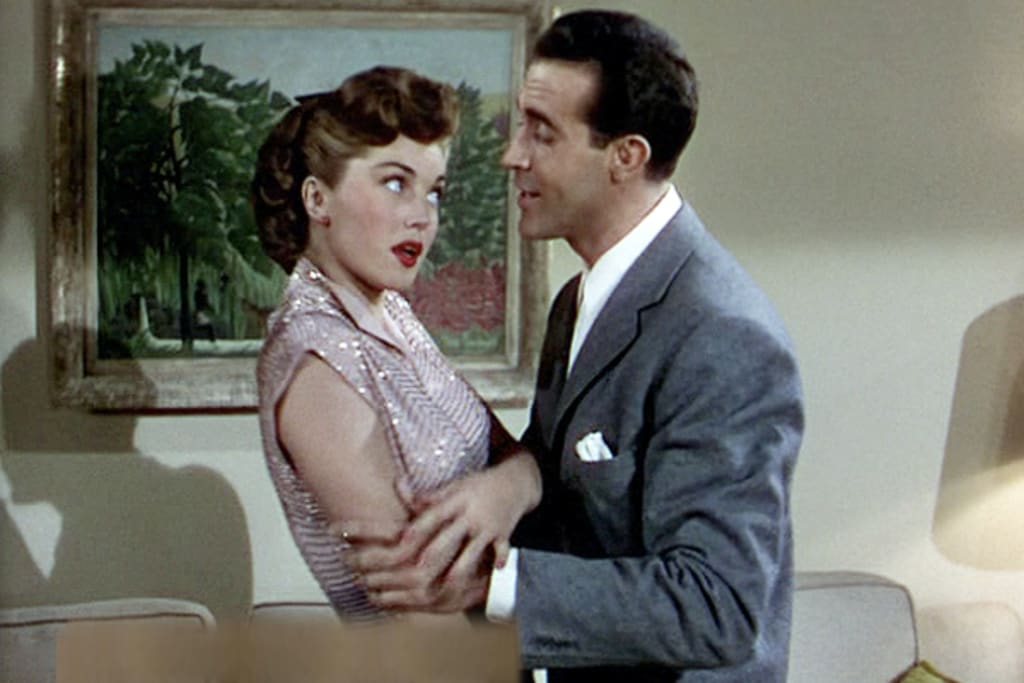'Baby It's Cold Outside' Becomes Hot Topic in #MeToo Era
Context and language are everything.

"Baby It's Cold Outside" has, thanks to #Glee (and #ErinDavis and #MikeCooper from 98.1 #CHFI in #Toronto), become one of my favorite #Christmas songs of all time. Before I talk about the lyrics, I just have to say that #ChrisColfer and #DarrenCriss looked like they were having a terrific time singing what had been until that point a duet between a man and a woman, and when I heard Davis and Cooper's version on CHFI, it struck me that these two cohosts and friends were having a ball singing it.
"Baby It's Cold Outside" was originally sung by its writer, Frank Loesser, and his wife, Lynn Garland, to perform at a Hollywood party, as it was a tradition in the 1940s that celebrities would attend parties but also perform. Generally, it was sung to indicate that the party was pretty much over and that people should start thinking about going home. The song was later purchased by MGM for use in the 1949 movie Neptune's Daughter, where it was performed by Esther Williams and Ricardo Montalban, and the song actually won an Academy Award. It's really a fun sort of song to listen to if you don't pay much attention to the lyrics nowadays.
On its surface, "Baby It's Cold Outside" is about a woman thinking she should go home in fairly short order as the weather isn't nice and a man attempting to persuade her that she should really stay, as the storm seems to be getting worse. It's sung in a lighthearted way and it does have a fair bit of bounce to it, and even though Christmas is not mentioned once, it's generally been treated as something of a Christmas song because the mention of the cold and blizzard puts the song's events as likely taking place sometime in December.
In the #MeToo era, it makes sense that the song is problematic. The woman in the song very much sounds like she wants to leave—the song starts with her singing that she "really can't stay," and that she's "gotta go away," after all. The end of the first verse has her deciding to stay for "maybe just a half drink more," and throughout the first verse, the man in the song is telling her that she shouldn't hurry away and he'll hold her hands because they're "just like ice." One could argue the man in the song is placing undue pressure on her to stay with him.
The second verse seems to increase the pressure on the woman, as the woman wonders "what's in this drink?" and the man asks her "What's the sense in hurtin' [his] pride" in leaving in what he feels is too soon a time span. By the third verse, she's told him "the answer is no" and it seems that at one point the man kisses her and tells her that her lips "are delicious." In the chorus, the man even implores her to not "hold out." It's easy to see, through a 21st-century lens, the predatory undertones in this song.
This song could have never been written in the #MeToo era and survived. In the mid-40s, when it was written, though, the song would have come across as lighthearted, a bit flirty, and with Ricardo Montalban having been something of a sex symbol at the time, "Baby It's Cold Outside" was no doubt very much enjoyed for what it is—a fun number sung between two people. Some of the phrasing at the time suggested a sense of being captivated with each other rather than a sense of the man trying to push the woman to do something she did not wish to do. For instance, when the woman asks "What's in this drink?" there was a suggestion that she was starting to fall for the man rather than question whether there was something in the drink. When the man asks the question about hurting his pride, there was the suggestion at the time that perhaps he found her captivating as well, not that he was pushing her for sex.
Certainly, in looking at the clip on YouTube, it's pretty clear that the song is set up as almost a turning point in the relationship between Montalban's and Williams' characters. The attraction between the two characters is readily apparent, and Montalban is very definitely taking advantage of his Latino charm with every note. It's very much a dance between the two characters, and while it's in some ways difficult to not watch the number and think about the meaning of the lyrics in the context of #MeToo, it's still fun to watch. The movie itself makes it clear that Williams' character is there to dissuade the charming Montalban's character from dating her sister, although Williams' character ends up falling for Montalban's character in spite of herself.
While we could make the argument that "Baby It's Cold Outside" is a song that no longer has a place in the #MeToo era, could we not also argue that it's a song that people can still enjoy? That, just because we now live under different circumstances some seven decades after the song was first written, we have to stop liking or listening to it? Does that mean we should not watch a movie like Neptune's Daughter because the song is featured?
Of course not.
While it's clear the Cleveland radio station that made the decision to stop playing the song probably did the right thing in pulling "Baby It's Cold Outside," we also need to be mindful that the context under which the song was initially written was considerably different than now, and that should not stop us from enjoying that song or others like it.
About the Creator
Christina St-Jean
I'm a high school English and French teacher who trains in the martial arts and works towards continuous self-improvement.






Comments
There are no comments for this story
Be the first to respond and start the conversation.